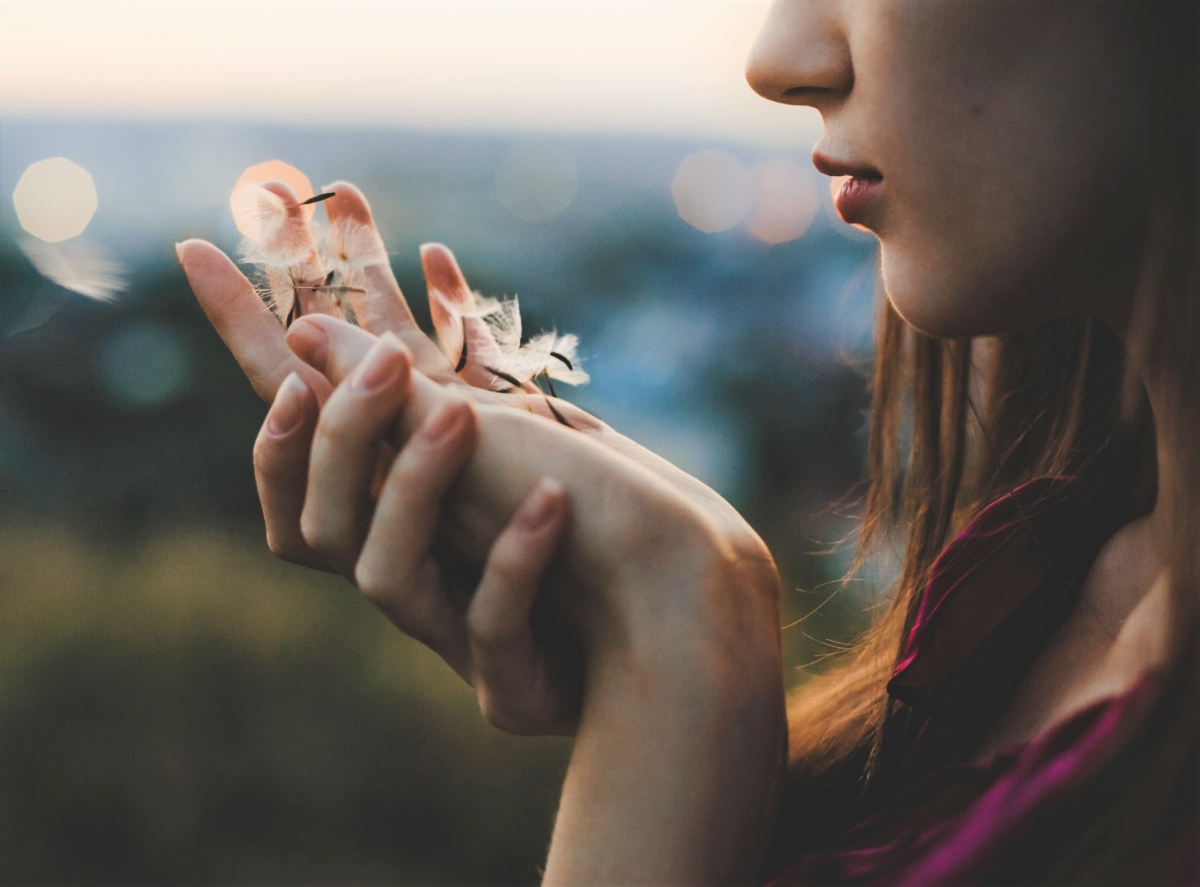 Back to school doesn’t have to mean back to stress! We’ve teamed up with Breathr, a mindfulness app for youth created by the health professionals at BC Children’s Hospital*, to bring you three youth-approved practices[1] and one unique meditation to support a peaceful transition into the school year.
Back to school doesn’t have to mean back to stress! We’ve teamed up with Breathr, a mindfulness app for youth created by the health professionals at BC Children’s Hospital*, to bring you three youth-approved practices[1] and one unique meditation to support a peaceful transition into the school year.
Starting off on the right foot may look like stepping into new routines infused with mindful moments. Waiting for the bus, taking the dog for a walk, eating a snack, or even tidying up are all opportunities for calm and ease with a mindful mindset[2] – one that is aware, loving, and open to one’s feelings and experiences in the present moment.
Adults can set the tone by modelling a mindful approach to stressful situations and incorporating these practices into everyday routines. Children’s natural curiosity often draws them to observe the adults in their lives and wonder about the significance of their actions. Youth, in particular, are natural skeptics – in order for mindfulness to seem worth their time, the adults around them need to lead by example.
Adults can start by working one (or more) of the following practices into their own daily routine for a week. Then, try talking to your youth about a mindful moment in your day – perhaps share a situation you brought your awareness to and how you felt in the moment. Invite them to join you in these practices[3] if they are interested.
Since both stress and mindfulness are contagious, adults can nurture Secure & Calm in young people by nurturing it in themselves. In this way, everyone benefits from mindfulness, regardless of whether or not young people choose to participate in mindful practices alongside the adults who care for them.
One-Minute Mindfulness Practices for Back-to-School
The following practices have been included with permission
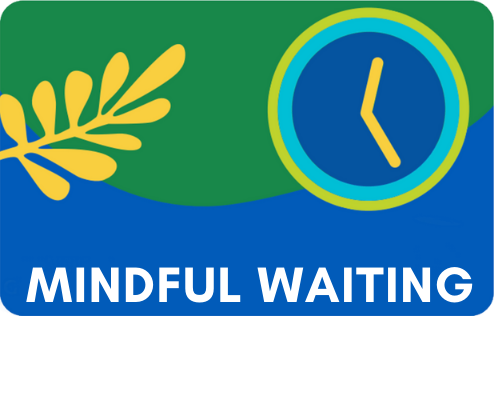 Mindful Waiting
Mindful Waiting
Description: Make wait time, mindful time. Explore the waiting exercise below or on the Breathr app.
Practice: Waiting – whether it is for the bus, for a friend, or for your computer to restart- is a perfect time to practice mindfulness. As you’re waiting, bring your awareness to the present moment. Breathe mindfully and notice what you’re thinking and feeling, without the need to change anything.
Reflection: What is the next opportunity you might have for mindful waiting?
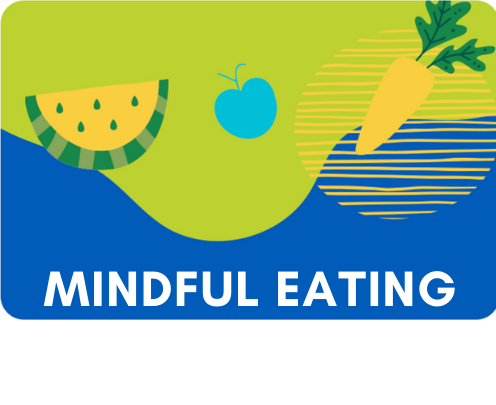 Mindful Eating
Mindful Eating
Description: Learn how to practice mindfulness while you munch, with the Mindful Eating exercise below or on the Breathr app.
Practice: When you’re eating, try to do only that – notice the colours, shapes, and textures of your food, the smell and how each bite tastes in your mouth. You might also try listening to the sounds you make as you eat or drink. This is a good way to practice mindfulness and can help you enjoy your food even more.
Reflection: What are three things you noticed when you ate mindfully?
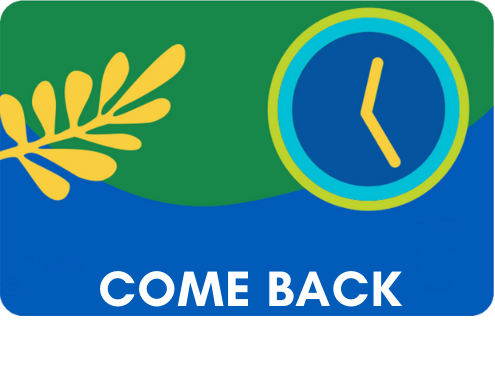 Come Back
Come Back
Description: Learn how to calm feelings of worry and regret with Come Back, a mindfulness exercise included below or on the Breathr app.
Practice: When you find yourself worrying about the future, or feeling guilt or regret about the past, you can return to the present moment by saying silently to yourself, “come back,” breathing mindfully and proceeding with awareness.
Reflection: When might you most need to “come back” to the present moment? How will you remind yourself during your day?
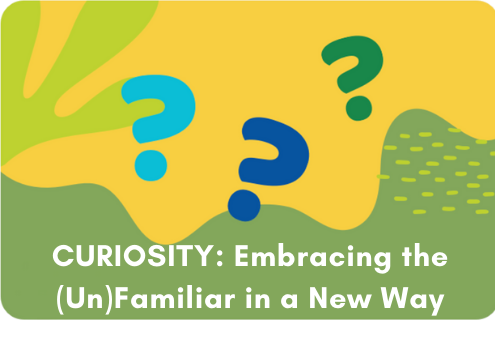 Curiosity: Embracing the (Un)Familiar in a New Way
Curiosity: Embracing the (Un)Familiar in a New Way
Description: This exercise is about noticing things in your day that usually go unnoticed and unappreciated. Allow yourself to be curious. This is also called “beginner’s mind,” because you can imagine that everything is new, and you might notice familiar things in a different way. Doing so is a powerful tool for soothing back-to-school stress at a time when “normal” is constantly shifting, as it teaches us to approach new and familiar experiences, feelings, and environments with a sense of wonder. It can also be accessed on the Breathr app.
Meditation:
1. Start by looking around and taking in your surroundings. Pretend you’re a small child, seeing this place as if for the first time.
2. Use your senses – sight, smell, and touch. Keep exploring until you discover something you haven’t noticed before.
3. Or maybe you notice something in a new way, like the way the light is reflecting off a tree through your window for example.
4. How does it feel to find a new way to experience a familiar space? What did you discover, about the space, or about yourself?
Reflection: What did you notice?
*About Breathr: Dr. Dzung Vo & Dr. Joanna McDermid, who lead the Centre for Mindfulness at BC Children’s Hospital, partnered with the BC Children’s Kelty Mental Health Resource Centre to create the app with support from generous donors through the BC Children’s Hospital Foundation.
Lead photo of woman by freepic.diller on Freepik.com.
The Breathr app was developed by BC Children’s Hospital’s Kelty Mental Health Resource Centre in collaboration with over 20 young people.
Youth’s feedback on the app include:
"I just want to start off by saying it looks AMAZING!"
"I love it! It is very soothing and visually pleasing, and feels good to use."
"I think that this would be a great tool for anyone to use! Excited for when the app is launched!"
"I have a lot of friends who could benefit from this app because of the stress and anxiety they experience as a result of school."
According to Dr. Dzung Vo, a pediatrician specializing in adolescent medicine at British Columbia Children’s Hospital in Vancouver and founding Director for the BC Children’s Hospital Centre for Mindfulness, mindfulness can be thought of as “paying attention in a particular way, on purpose, in the present moment, and with unconditional love.”
Doing so can help mitigate stress and pain that are often the result of thinking about past regrets or worrying about the future. Mindfulness helps by equipping us with strategies that focus on remaining in the present moment.
Click “more” to read about one teen’s powerful experience learning about mindfulness with his Mom!